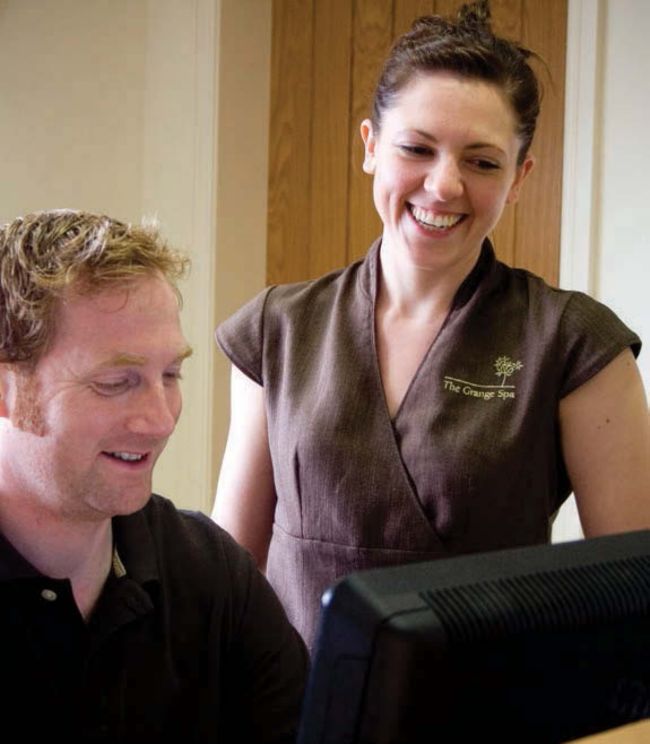Salon and spa owners reveal the things they wish they’d known when they were starting out, and tell Fiona Vlemmiks what they learned from their mistakes
Fiona Vlemmiks
1 Never agree on a handshake
Clare Rogers, founder of The Treatment Rooms salon in Brighton, believes that most therapists are, by nature, “trusting, caring and honest”. However, after her trusting nature led to financial loss, she learned that some business owners can be ruthless.
“I thought I had sold my lease on my first salon and agreed a price with the new owner, someone I knew in the business,” she explains. “They dragged the process on for so long, then pulled out at the last minute and negotiated directly with the landlord, leaving me with legal fees and a dilapidation order.”
Her advice now? “Never agree anything unless it’s in writing and you’ve had a legal team advise on it. The biggest lesson I’ve learned is that not everyone in business is honest,” she says.
2 Identify your strengths
“When we first started in business 25 years ago, I wanted to create a day spa,” says Hellen Ward, managing director of Richard Ward Hair & Metrospa in London. “But with three small treatment rooms, it was hard to achieve. Also, back then the term ‘spa’ wasn’t widely used and normally referred to overnight treatment centres.”
Ward says she wasted so much time trying to grow something that only represented about 5% of the business’s turnover, rather than expanding on the more successful manicure and hair services that her clients really wanted by adding additional quick services that dovetailed more with the grooming-on-the go philosophy.
“It was a client who eventually knocked some sense into me,” adds Ward. “She told me ‘Hellen, if I want a floatation tank, I’ll go to Champneys, not Sloane Street!’ It really hit home that listening to what clients are telling you that you do well is key. I’ve learned to cultivate what we do best.”
3 Budget for every cost
Matt Craven set up The Grange Spa in Linconshire with his wife Emma in 2009. Despite their enviable combined spa experience, Craven says it took several years for the couple to truly hone their budgeting and financial forecasting skills. “At first we were not great at running a business, so our first mistake was budgeting and calculating profit margins,” he says. “It took about four years before we really caught on. Our profit margins weren’t good as we hadn’t anticipated the cost of absolutely everything. We had allocated budget for a few things, like towels and pool running costs, but had not focused on all of the detail.
“We now budget for everything, from light and power, to complimentary sweets and even the lemoninfused water. We know exactly what’s required, through a complex forecasting model, and therefore exactly what we need to make a profit. In order to run a successful business, the devil really is in the detail.”

The Grange Spa
4 Create processes
Most therapists are personable by nature but that doesn’t mean they’ll automatically become the best people managers. Melanie Philbin, owner of the two Beauty Matters salons in Leeds, admits that managing staff was a challenge until she discovered that a more systematic approach was needed. “I’ve realised that people don’t manage people. Systems manage people,” she says.
After identifying the problems, she took the decision to take “time out” of the day-to-day business to devote more time to devising procedures for staffing, and other areas. She created a full operations manual for her business. “This was a scary decision that ultimately brought great rewards,” she says. “My systemised business now allows me to identify any problems that arise much more quickly.”
5 Cut your losses
Tima Reshad, director of Coco Nail Bar in London, believes one of her potentially costly mistakes was choosing a software provider that didn’t fit with her requirements. “Although I had chosen a fairly good provider when setting up the business, the system didn’t support all my needs. In addition, I always felt I had to adapt to its format, instead of using my preferred methods.”
Reshad took the decision to cut her losses and find more suitable software, which catered for all her existing business needs and offered more beyond. “Once I switched to Phorest, there was no looking back,” she says. What have I learned from this mistake? Don’t be afraid to change, be open to new opportunities, products and services as they may meet your requirements better than your current supplier does.”
6 Forget fads
Sam Pearce, creator and owner of organic, garden-themed spa The Potting Shed in West Yorkshire, has learned that it can be easy to get caught up with industry fads that don’t provide long-term return.
“We’ve had our fingers well and truly burned”, says Pearce, when discussing rushing into the latest “wonder” treatments that often involve a large financial outlay. She warns salon owners to do their calculations before investing in any new equipment, particularly aesthetic machines.”
“‘Don’t listen to the hype,” she advises. “It’s very easy to get caught up with overnight trends, and trying to crowbar them into your offering can be an expensive mistake. Before you are swept away by the latest fad, be truly honest with yourself. Are you sure you’ll make the necessary return on your investment?”
7 Work smarter, not harder
“In my early days, I felt as though I had to be on the go all the time,” says Jane Tregonning, spa manager at Ribby Hall spa in Lancashire. “The more I felt that I was ‘doing’, and the busier I was, the more successful I thought the business would be.”
Now, with 20 years’ experience, Tregonning says she’s learned that this way of working is simply not sustainable. “I needed to realign my thought process and value the importance of a ‘plan, do, review’ type model. I also learned that I didn’t need to take on as much as I had been doing alone.”
Tregonning says she improved her delegation skills, which has since benefitted her team and the business. “Sensible delegation helps empower staff, gives them a sense of ownership and drives results collaboratively,” she says. “We’ve just had our most successful year yet and I give full credit to the whole team.”
8 Don’t rush recruitment
When you have a staff vacancy, there’s a temptation to fill it as soon as possible. Yet, this is not always beneficial to the business, as Becky Woodhouse, chief executive of the successful Scottish day spa chain Pure Spa, found out. “You might find someone, at first glance, who seems ideal for the position and it’s tempting to bypass your internal processes in order to recruit them as quickly as possible,” she says.
But Woodhouse advises a more measured approach. “We’ve learned to stick to our procedure and take our time to really make sure that the person is right for the position we are looking to fill,” she explains. “This helps to set expectations in the eyes of the staff member, while giving us an opportunity to reflect on the person, which is more likely to lead to them staying with us longer term.”
9 Share your figures
“When I started out, I didn’t share the salon finances with the team because I assumed they wouldn’t care, or understand, how we were doing,” says Woodhouse. “I couldn’t have been more wrong. Since we started sharing, we get much higher participation from the staff, and they all want to help us do better. Not just the management, but all the team is responsible for this, and it works.”
Craven agrees: “It is important to be reasonably open about what your business needs to function; this information needs to be relayed to the rest of the team. If you’re going to make target you will need some help to get there. Learn your margins and apply them to each sector of your business that needs to pull its weight.”

Potting Shed Spa
10 Ignore imitators
The salon and spa market is dominated by small businesses, meaning many new starters take inspiration from established, successful businesses when designing their salon concept, but sometimes inspiration can cross the line into imitation. “One early mistake I made was not realising that creating a new concept meant I might be plagiarised by other businesses,” says Pearce, whose innovative horticultural theme has earned her much industry accolade.
“What I did wrong was to take it personally and react angrily. I feel that on occasions I let myself down, but I have now learned not to. I’ve realised that when you create something with a unique selling point, you are going to get ‘copycats’. I’ve learned to see this as a compliment, and recognise that if I’m a leader then the imitators will inevitably always be one step behind.”